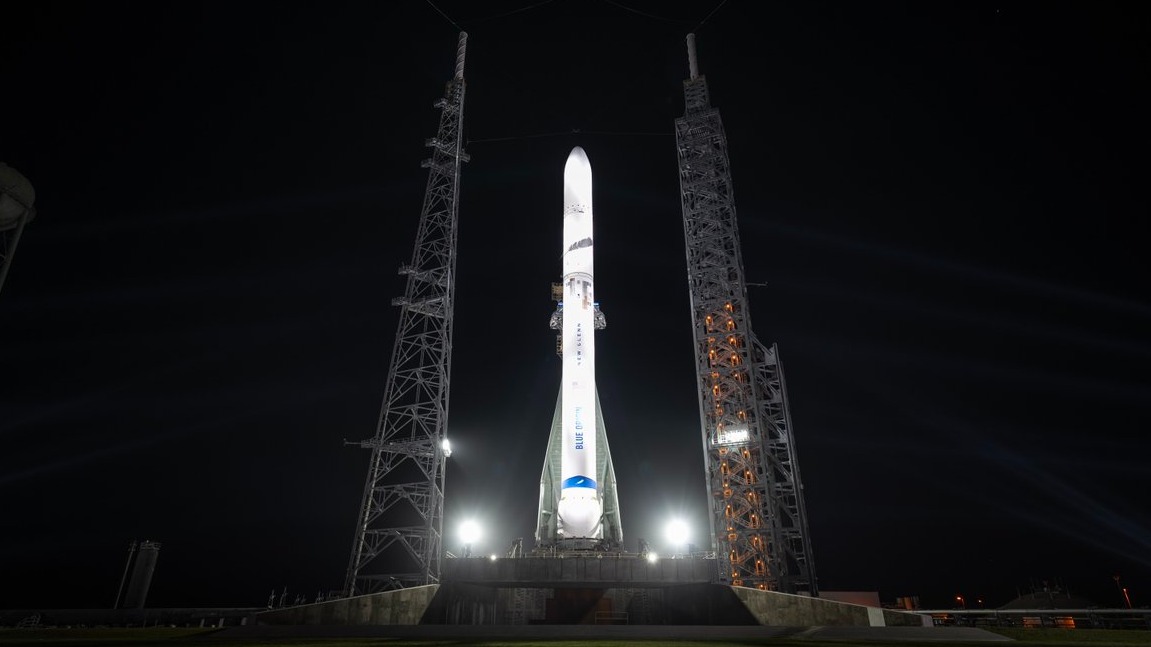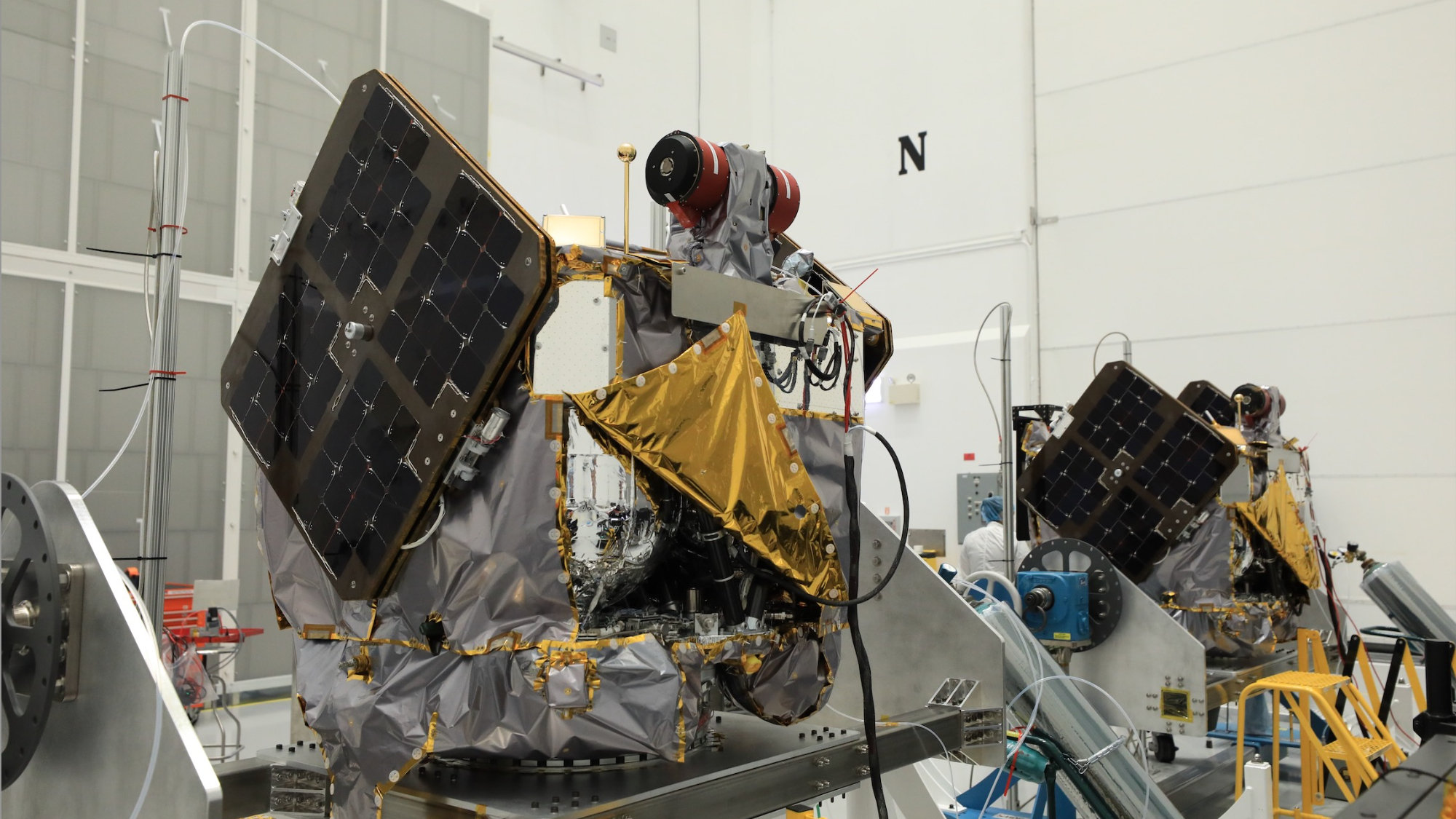NASA delays ESCAPADE Mars launch on Blue Origin's giant New Glenn rocket to 2025 to avoid potential cost overruns

Blue Origin's huge New Glenn rocket won't debut next month after all.
New Glenn, the company's partially reusable new heavy lifter, had been scheduled to launch NASA's twin ESCAPADE Mars probes from Cape Canaveral Space Force Station in Florida during an eight-day window that opens on Oct. 13. But that's no longer the plan.
"The agency's decision to stand down was based on a review of launch preparations and discussions with Blue Origin, the Federal Aviation Administration and Space Launch Delta 45 Range Safety Organization, as well as NASA's Launch Services Program and Science Mission Directorate," NASA officials wrote in an update today (Sept. 6).
"The decision was made to avoid significant cost, schedule and technical challenges associated with potentially removing fuel from the spacecraft in the event of a launch delay, which could be caused by a number of factors," they added.
NASA and Blue Origin are discussing new liftoff dates for ESCAPADE, with the earliest possible option now falling in spring of 2025, according to the update. That seems puzzlingly soon, given that launch windows for Mars missions come along just once every 26 months. (That's the interval on which Earth and the Red Planet align to allow efficient deep-space travel.)
Blue Origin doesn't plan to wait that long to get New Glenn off the ground, however.
"We plan to move up New Glenn's second flight, originally scheduled for December, into November. New Glenn will carry Blue Ring technology and mark our first National Security Space Launch certification flight. We'll provide more details on these launch plans in the coming weeks," Blue Origin, which is run by Amazon founder Jeff Bezos, said in an X post today.
Breaking space news, the latest updates on rocket launches, skywatching events and more!
Blue Ring is the company's new spacecraft platform, which is "focused on providing in-space logistics and delivery," Blue Origin wrote in a description of the technology. "The platform provides end-to-end services that span hosting, transportation, refueling, data relay and logistics, including an 'in-space' cloud computing capability."
Related: Facts about Blue Origin, Jeff Bezos' spaceflight company
The ESCAPADE (Escape and Plasma Acceleration and Dynamics Explorers) mission will send two spacecraft, named Blue and Gold, to Mars orbit. The duo will gather a variety of data about the Red Planet and its response to space weather.
NASA said it still plans to send the ESCAPADE probes to Mars; the delay will be just a bump in the road for the $80 million mission.
"This mission can help us study the atmosphere at Mars — key information as we explore farther and farther into our solar system and need to protect astronauts and spacecraft from space weather," Nicky Fox, associate administrator for science at NASA Headquarters in Washington, said in today's update. "We’re committed to seeing ESCAPADE safely into space, and I look forward to seeing it off the ground and on its trip to Mars."

Michael Wall is a Senior Space Writer with Space.com and joined the team in 2010. He primarily covers exoplanets, spaceflight and military space, but has been known to dabble in the space art beat. His book about the search for alien life, "Out There," was published on Nov. 13, 2018. Before becoming a science writer, Michael worked as a herpetologist and wildlife biologist. He has a Ph.D. in evolutionary biology from the University of Sydney, Australia, a bachelor's degree from the University of Arizona, and a graduate certificate in science writing from the University of California, Santa Cruz. To find out what his latest project is, you can follow Michael on Twitter.

